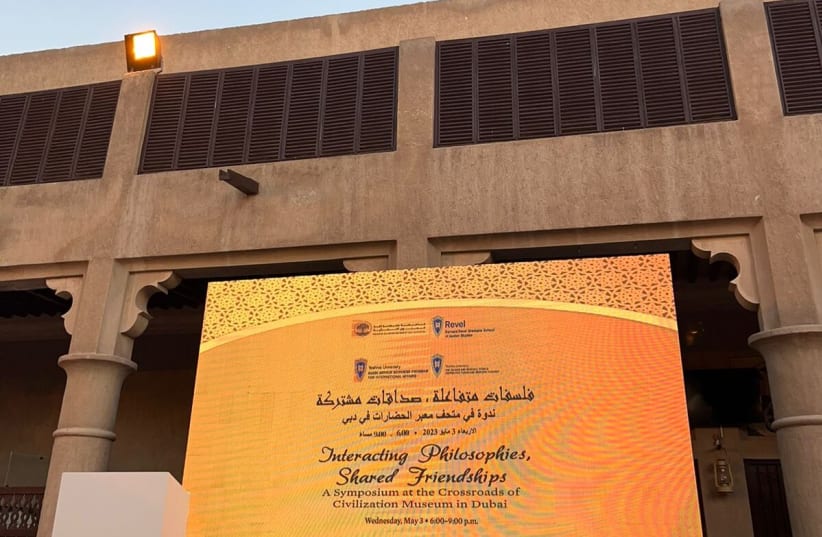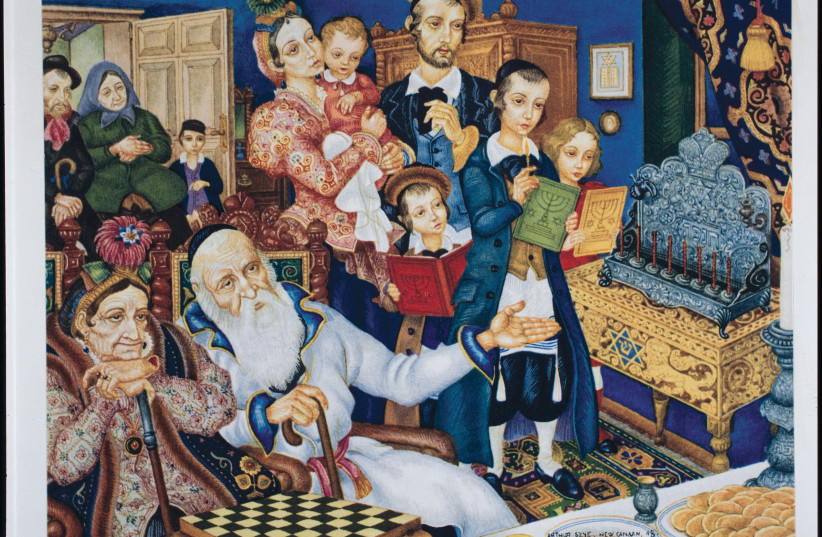Scholars from New York’s Yeshiva University and Abu Dhabi’s Mohamed Bin Zayed University for Humanities held an academic conference at the Crossroads of Civilization Museum in Dubai in early May, the first such conference to be held between the two universities.
Titled “Interacting Philosophies, Shared Friendships,” the conference discussed how medieval Muslim and Jewish scholars had influenced each other, focusing especially on the impact of 12th-century Muslim scholar Ibn Rushd on Jewish sage Moses Maimonides.
“Academic collaboration is a zone that can and should be apolitical,” said Rabbi Dr. Stuart Halpern, senior advisor to the provost at Yeshiva University and deputy director of the university’s Zahava and Moshael Straus Center of Torah and Western Thought.
The golden age between Jews and Muslims
He said the Middle Ages are considered a Golden Age between Jews and Muslims, and “we want to show how scholarship uncovered, through history, our shared values.”
The conference brought faculty members and students from both universities together in the United Arab Emirates. The Yeshiva University students flew in “to learn about the culture that exists here, one of tolerance, and to be exposed to the possibility of what the future holds,” Halpern said.
“I think it’s very easy to get caught up in the sound bite culture that social media is in love with, this idea that you can somehow summarize complicated things in a span of a tweet,” he said.
“We are trying to show people that when we were together centuries ago, we were living the best lives together. The Middle East was the shrine of values,” the founder of the Crossroads of Civilizations Museum, Ahmed Almansoori, told the conference. He said the event aimed to encourage a new way of thinking in the Middle East, “how we can change the game from a zero-sum game to a win-win game.”
Almansoori hosted the first Holocaust memorial in the region, in 2021, and collects Jewish artifacts from the Middle East. The first cultural event between Muslims and Jews at the museum took place in 2020 under the title “Rebuilding the Tent of Abraham.”
Jerusalem Deputy Mayor Fleur Hassan, a regular visitor to Dubai since the signing of the Abraham Accords in 2020, said that bringing Yeshiva University to the UAE was “a real treat.” Describing the work of the museum, she said: “We have real partners here in the region for everything we want to do.”
Hassan said that Ibn Rushd and Maimonides are examples of the “bridgers” needed in the region.
“It is interesting to see the similarities between Ibn Rushd and Maimonides,” said Yeshiva University student Ruchama Benhamou, 20. “They both analyze Aristotelian philosophy in a different way and come to different conclusions about faith, and it’s fascinating to know their journeys and how they came to that.”
And another Yeshiva University student, Penina Spearman, 22, said: “I am really interested in philosophical texts and I happen to really like Maimonides. He was very entrenched in the Arab world, so to see where that scholarship has come from is very interesting.”
The Israeli consul general in Dubai, Liron Zaslansky, also addressed the event, saying: “Our cultures, though we come from the same place, are different, and we need dialogue.”

